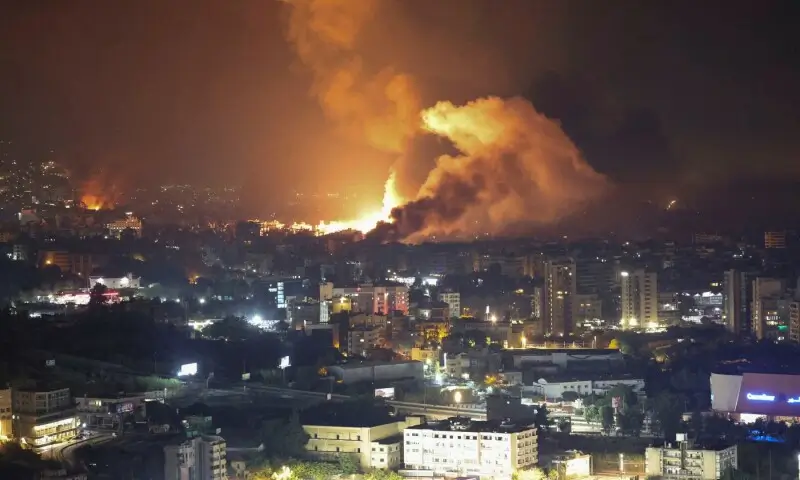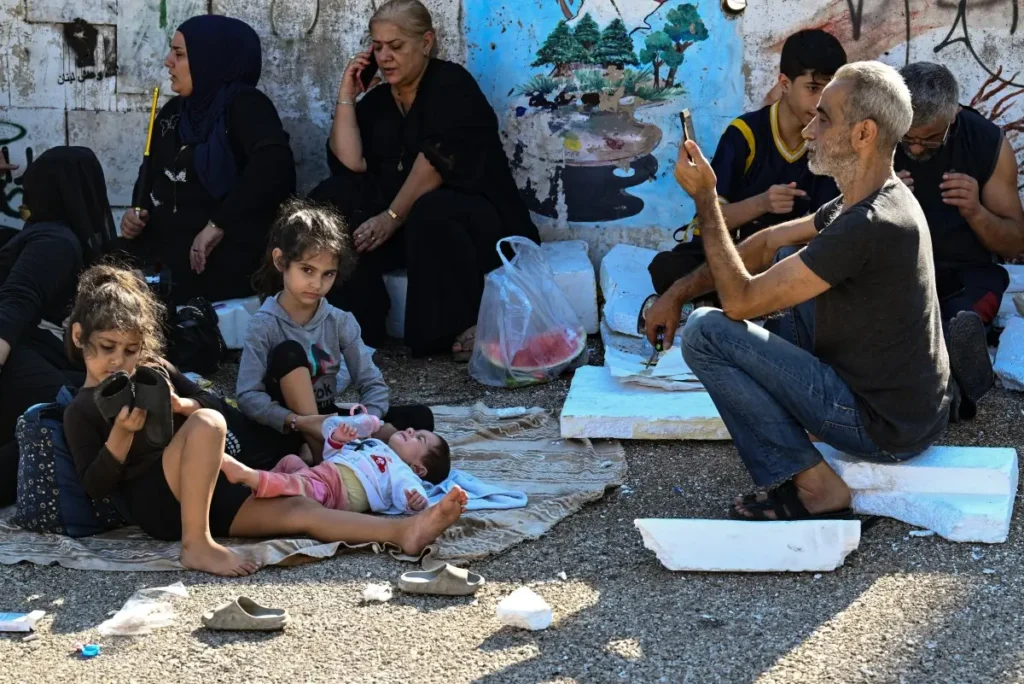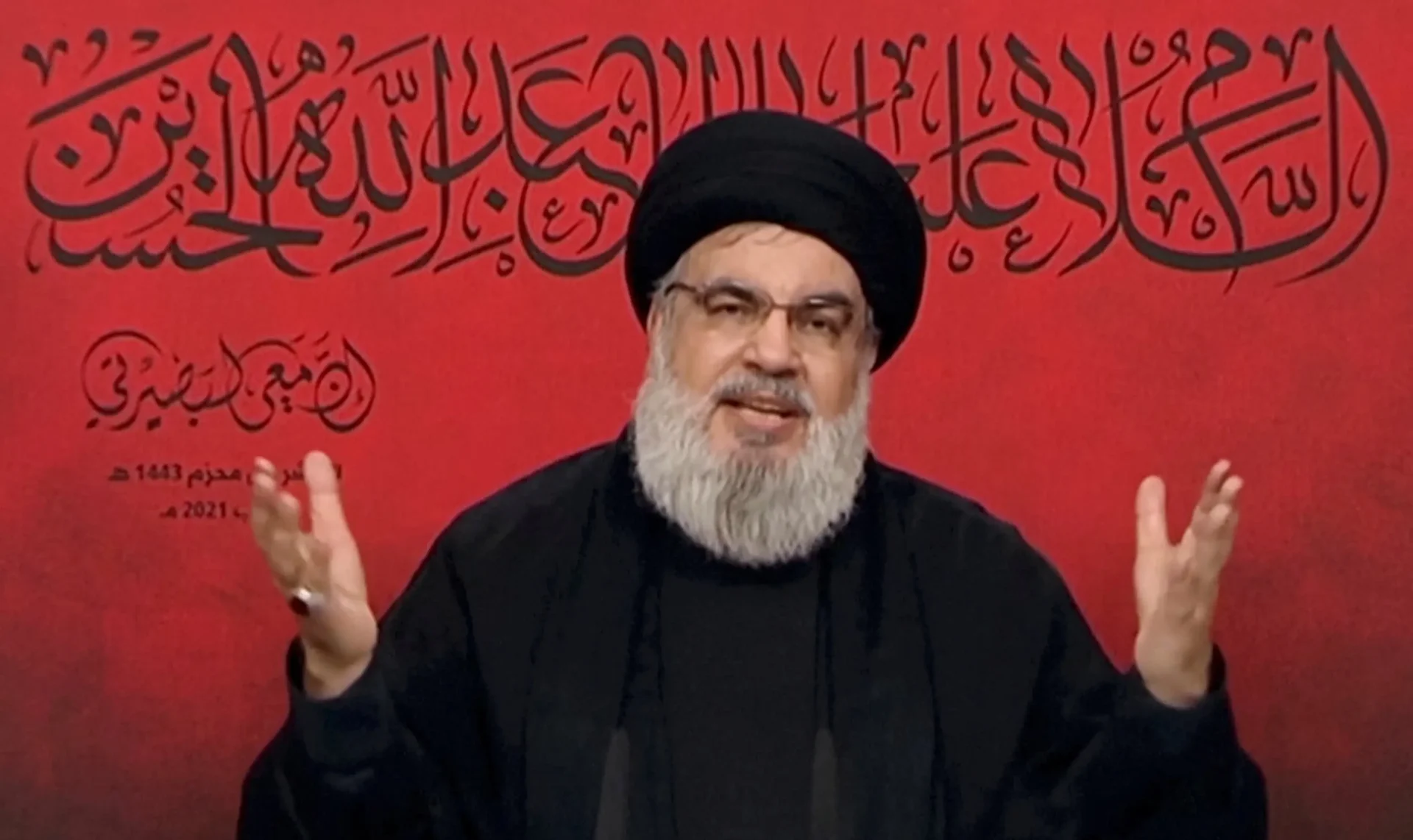Hezbollah Confirms Hassan Nasrallah Killed in Israeli Airstrike
Sayyed Hassan Nasrallah, the leader of Hezbollah, has been declared dead as a result of an Israeli airstrike in the suburbs of Beirut’s south. The “Axis of Resistance” has suffered a great loss with the passing of Nasrallah, a key figure, as Israel steps up its military operation against Hezbollah targets.
Hassan Nasrallah’s Death and Iranian Response
Hezbollah claims that Hassan Nasrallah died in the Israeli hit on Friday, along with a number of other senior leaders. A prominent Hezbollah leader named Ali Karaki and a deputy commander of Iran’s Revolutionary Guard Corps named General Abbas Nilforoushan were also killed. Iran, which has long funded and supported Hezbollah, is also seen to have suffered a great loss with the passing of these influential individuals.
Israel’s Targeted Strike on Hassan Nasrallah
The Israeli military took responsibility for the airstrike that killed Hassan Nasrallah, claiming the operation targeted Hezbollah’s underground headquarters in Dahiya, a southern suburb of Beirut controlled by Hezbollah.
- Israeli military statement: The strike, according to Israeli soldiers, was a component of a larger scheme to remove Hezbollah’s leadership. Speaking after confirming Nasrallah’s passing, spokeswoman Avichay Adraee said he would no longer be able to “terrorize the world.”
- Continued strikes: Israel has increased the scope of its military operations, hitting Hezbollah locations across Lebanon, including as the Bhamdoun mountain hamlet and the Bekaa Valley.

Regional Reactions to Hassan Nasrallah’s Killing
The death of Hassan Nasrallah has sent shockwaves across the region, with both Hezbollah allies and adversaries weighing in on the implications of his assassination.
- Condemnations: The supporters of Hezbollah, which included Hamas and the Houthis of Yemen, as well as organizations supported by Iran, denounced Israel’s actions and referred to Nasrallah’s passing as a spark for more struggle.
- Turkey: Israel is accused of conducting “genocide” in Lebanon by President Recep Tayyip Erdogan, while Iraqi Prime Minister Mohammed Shia al-Sudani referred to the strike as a “crime.”
- Regional Displacement: Over 200,000 people have left the impacted areas of Lebanon, including Martyrs’ Square in Beirut, where displaced families have taken sanctuary, as a result of the attacks.

Impact of Hassan Nasrallah’s Death on Hezbollah
Hassan Nasrallah’s death is likely to have significant repercussions for Hezbollah and its operations. As a central figure for over 30 years, Nasrallah was a major force in shaping the group’s political and military strategies
- Uncertainty in Leadership: Hezbollah’s power in Lebanon and the surrounding area had been solidified under Nasrallah’s direction. With his passing, concerns are raised regarding the group’s future course and its ability to carry on with activities in the face of continued Israeli strikes.
- Potential Escalation: Hezbollah has vowed to retaliate, raising concerns of further escalation in the ongoing conflict between the group and Israel.
International Reactions to the Killing of Hassan Nasrallah
The intensification of Israeli airstrikes in Lebanon and the killing of Hezbollah’s senior leadership, including Hassan Nasrallah, have raised alarms among international bodies.
- United Nations: The US and France have suggested a ceasefire, and there have been further calls for moderation. US Secretary of State Antony Blinken, in the meantime, emphasized the importance of diplomacy and urged all parties to chose communication over ongoing military action.
- Israel’s Justification: Israeli Prime Minister Benjamin Netanyahu defended his country’s actions at the United Nations, stating that Israel had the right to defend itself and remove Hezbollah’s threat.

